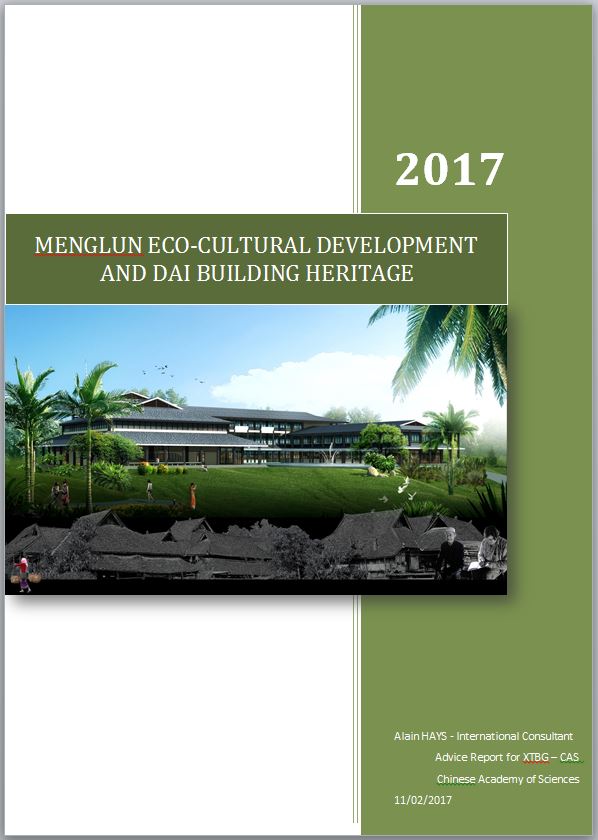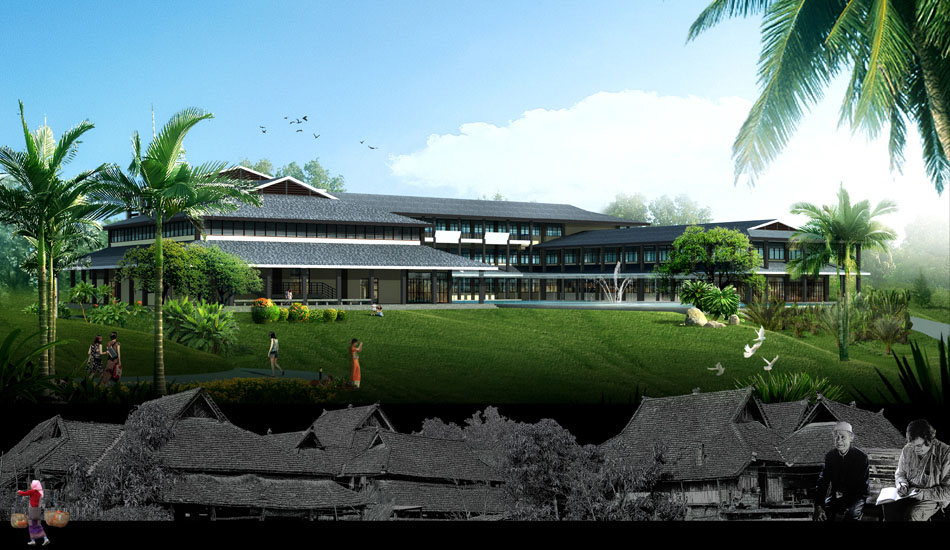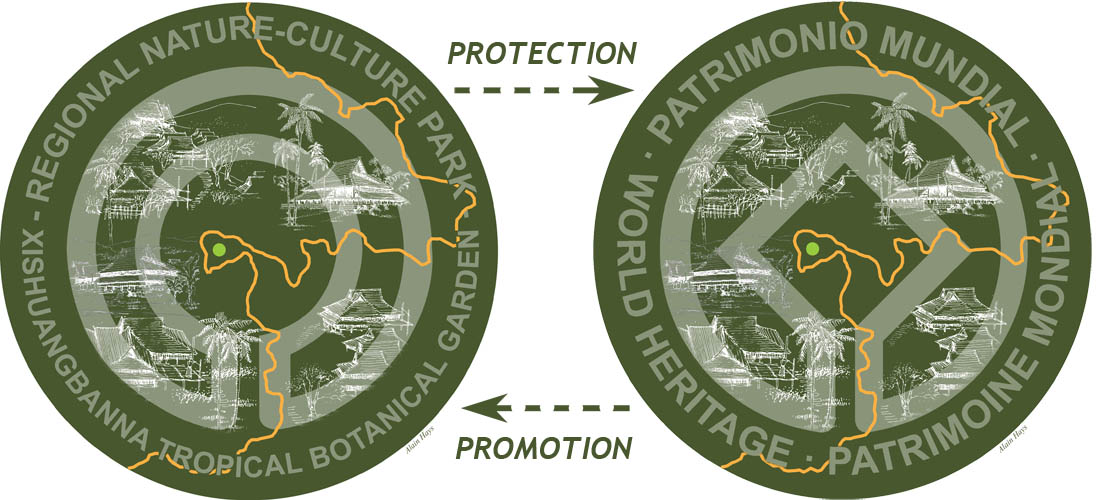Xishuangbanna Tropical Botanical Garden (XTBG) is trying to seek a way for the win-win development of XTBG ang Menglun Town. Prof. Chen Jin, director of XTBG, has been seeking advice from some international consultants. Mr. Alain Hays, chief designer of the XTBG scientific research center and residential complex, recently submitted a new special advice report entitled “Menglun Eco-Cultural Development and Dai Building Heritage”.
The report argues the importance of the Dai (and Akha Hani) wooden building heritage preservation for a fruitful and harmonious “eco-cultural” development of the Menglun region which has strong historical ties with the Xishuangbanna Tropical Botanical Garden (XTBG-CAS).
The Dai building heritage is the expression of strong folk art, part of a deep nature-based culture: a treasure of skill, experience and knowledge that has be passed on through the generations and run the risk of disappearing in few years as the urban growth expands towards rural areas and tropical woodlands.
As already mentioned in the previous report entitled “Xishuangbanna World Botanical and Eco-Cultural Heritage”: “Dai and Akha Hani settlements, and the Xishuangbanna Tropical Botanical Garden embedded in this indigenous cultural and natural context, form a unique cultural and natural heritage that deserves to be known at global level, for the strong ecological message it brings to humanity.”
This new report suggests making a well-done global “Eco-cultural master plan for Menglun region development” which could be useful for an optimized region development, and for nature and culture preservation.
The document attempts to clarify strategic visions around the Dai building heritage preservation which could contribute to the environmental and nature protection. The author suggests analyzing the possibility of the establishment of an original “Regional Nature Park” for implementing actions according to five missions for:
1. Developing the territory by protecting it,
2. Protecting the territory by promoting it,
3. Making a fruitful land planning and management,
4.Welcoming, informing, and educating visitors about the issues they are addressing,
5. Experimenting with new forms of public action and collective action.
In case of Menglun, it may be named as “Regional Eco-Cultural Park” or “Regional Nature-Culture Park” and XTBG would be at the core of it: a prime initiative that could also argue for a Cultural and Natural World Heritage recognition.



